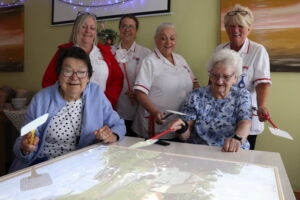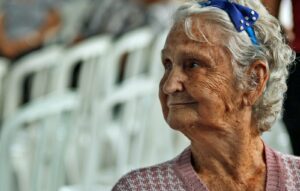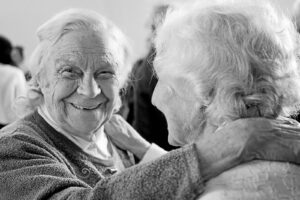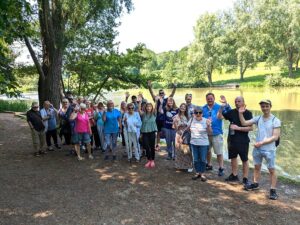What being an unpaid carer has cost me
David Crisp, a National Autistic Society-trained autism speaker from Wired4autism, discusses the personal cost of caring for a family member.
Nothing prepares you for the way caring for a family member changes your working life, your family relationships, your lifestyle and your wellbeing.
I have been caring for one family member or another for the best part of half a century. My late father had to retire from work due to ill health, leaving my late mother to go out to work full time to support the family.
Later, my mother developed vascular dementia and, as the youngest child and the only one without a family of my own at the time, I became my parents’ main carer.
When my mother went into residential care, I was able to devote a little more time to developing other relationships. I met, and later married, my wife while still acting as the primary carer for my parents. When both died within three months of each other, I was finally able to put my energies into my career and my young family.
However, any respite from caring was to be short-lived, as my children soon began to show signs of having significant special needs and autism.
As a devoted family man, I was prepared for the commitment, but I wasn’t prepared for the long-term impact on my life. The lack of money, the health issues and the lack of understanding from family and friends.
Lack of support from friends and family led to me becoming increasingly socially isolated. And, although I was able to continue working with my wife being the main carer, the pressures of being a carer and fighting for support from the local authority caused my health to deteriorate. I was forced to retire from my job as a civil servant on health grounds, having become incapacitated by chronic fatigue syndrome.
After I was diagnosed with autism, I returned to my first love; working in care. I had previously worked as a student nurse and returning to the care sector enabled me to better understand myself and my children.
Despite the stress l faced supporting adults with challenging behaviours, work remained my respite. My daughter then developed other health issues and I had to change employers a few times to be closer to home. Ultimately, this led to me becoming a self-employed autism speaker, trainer, advocate and writer.

Looking after people out of love
Local authorities and central government continue to take unpaid carers for granted and by withholding the luxury of support in work they add to our depression, isolation and sense of helplessness.
Instead of recognising our worth, they consider us to be as dependant as the people we are looking after out of love.
Work allows me and other carers time out from caring at home and provides income, as well as more self-respect, the chance for an occupational pension to provide financial security in the future.
We carers are responsible adults who have made hard choices and put our wellbeing second. However, we feel undervalued by society and by local and central government.
It’s the battle for services that is the problem, not the person. I don’t feel that non-carers realise how much stress it puts on the unpaid carer and the impact it can have on their health.
Most unpaid carers get little help and many, like my wife and I, haven’t had a holiday, a day off, a day out or a lie in for a number of years.
For my wife and I, it is a constant battle to get services that meet our daughter’s needs and we feel constant anxiety around the amount and quality of care available. During the Covid-19 pandemic, these anxieties and sense of isolation became more severe.
The ultimate unsung heroes
Carers UK’s report, entitled ‘Caring Beyond Closed Doors-Six Months On’, highlighted the significant impact that the coronavirus pandemic had upon unpaid carers.
Their survey concluded that a staggering 81% of all unpaid carers have provided more care during the pandemic.
During the first lockdown, I was encouraged by my last employer to shield to support my clinicay vulnerable daughter and later I made the hard, but necessary, decision to become self-employed while shielding.
We have found some excellent carers at home for our daughter. However, my wife and I remain exhausted most of the time, both mentally and physically, and, like so many carers, struggle to cope financially.
As a young man, I had no idea that caring would have such a huge impact on my life, particularly on my ability to look after my health, have a social life, have holidays and follow my own interests
However, I take comfort in the knowledge that my wife and I are not alone and that caring for a family member, however stressful, is the most rewarding career of all, despite all of the hardships.
Being a carer has cost me a great deal but, by being self-employed, I am able to support and help others through public speaking, training and my writing and advocacy, while being here for my family.
To my fellow unpaid carers, of which there were approximately 9.1m, I salute you. You are the ultimate unsung heroes of these challenging times.
Photo Credit – Francisco Moreno
















Caring isn’t valued, it sad we save so much money and our loved one prefer us looking after them
Hi Sarifa. Thank you for commenting!
Oh my I salute you too. Impact for sure
Hi Sally. Thank you for your response